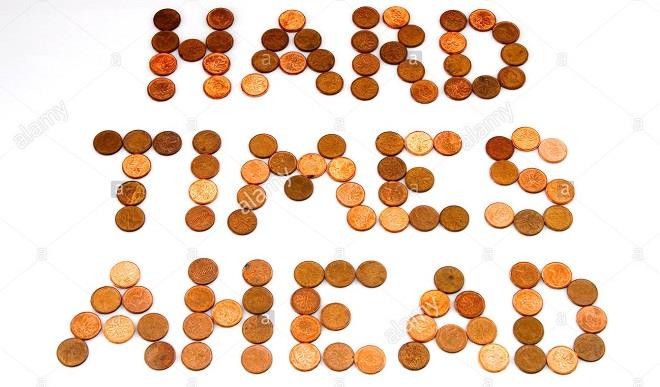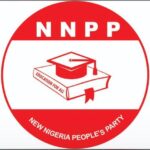
In my neck of the woods, many adults will tell you that they cannot remember harder times. They will be speaking of their own experiences and those whose lives and circumstances they are familiar with. Muslims in particular will say this is one of the most difficult months of Ramadan they have had to endure. The holy month of Ramadan during which, with few exceptions, all Muslims are commanded to fast from sunrise to sunset, also has many peculiarities, some religious, others social. It is a month in which Muslims live with the highest levels of deprivation, devotion and sacrifice. Those who are well off are encouraged to show generousity and compassion to those less endowed. When comfortable Muslims are unable to sustain their normal lifestyles as well as reach further to make lives of less fortunate others more comfortable, entire communities feel the impact. Faith cushions pain and deprivation, but it also asks deeper questions about them.
No one will say they have been caught unawares. The cost of living has been rising in the last few months, and meeting the cost of basic essentials like food and transportation has been challenging many families. As Ramadan approached, they rose higher. This was, after all, the month in which feeding is both regulated and indulged in, in unusual scales and styles. Food must be available at Iftar, the period when fast is broken. Poverty has not exempted poor Muslims from fasting, so those who have enough splash during Iftar, but they also do enough to make sure that those who cannot feed themselves do get at least this one meal. Sahur, the meal taken just before sunrise is strongly encouraged. Those who can afford it also put out some of it for those who will otherwise start the fast on a depleted stomach the next day. When the cost of food and other essentials rise to the point they did this Ramadan, and the circle of the generous and wealthy shrinks, families cut down drastically on feeding. Those who depend entirely or largely on generosity are cut off from social nets. The elaborate Islamic social and security net is threatened by poverty of faith and, more significantly, by economic poverty.
Millions of Muslims have reached Iftar this year without a morsel to break their fast. The rich had less to give, and everyone was watching stores and pockets to meet only the most essential obligations. Governments that used to engage in Ramadan feeding of the poor cut down drastically, or cancelled the programme entirely. Many bread winners and family heads had not been paid for months, and credit lines had dried up. Those who had jobs or other sources of income in a shrinking economy would only get a bag of rice for N18,000, and few more essentials in addition will gulp up an entire monthly pay. As they counted the little quantities of a depreciating Naira very carefully, household heads agonised over another vital obligation: the traditional new clothing that has to be made for wives and children and extended family at the end of the Ramadan period. Adults could live without new cloth this Sallah, but for children who equate Sallah with new set(s) of clothing, it was unthinkable. Parents stayed awake nights thinking how they could procure this expensive requirement for familial harmony. The also worried about cost of fertilizer, school fees, medical bills and routine and unanticipated expenses.
As Ramadan came nearer to its end, blood pressures rose as family heads worried more over meeting other social and religious obligations. Household heads had to settle Zakatul Fitr, a specified quantity of food to be given to the poor at the end of Sallah, so that they too can have something to eat on the festive day. It could not have been easy for many household heads as they assessed stores and pockets, to decide whether they should give or receive this Zakat themselves. It must been even more difficult meeting this religious obligation when it had to coincide with the improved feeding that is associated with Sallah days and the extras in cash that is required to keep spirits up, and traditions going. It is very likely that this last month has re-classified many families downwards.
Still, those who could afford the luxury of thinking of others less fortunate will be grateful that they were not among the millions of Muslims living in IDP camps, entirely at the mercy the elements, the generousity of governments and the international community. They too are not exempted from fasting, but cannot go round families and neighborhoods seeking for food for Iftar and Sahur. Children in IDP camps and child beggars in their millions who also fast will not wear new cloth for Sallah. They may hear from an adult or two of sumptuous meals involving disabled persons and I.D.Ps and leaders in capitals, but these stories will fade away as they resume normal lives with an unknown future. Some people will hear that civil servants have received letters of sack this Ramadan after waiting for months to be paid salaries. Some other civil servants will hear definitive statements that salaries cannot be paid in full, or arrears settled. All Nigerians would have heard the plea from President Buhari for patience and support in these times of economic hardship.
In spite of seeming evidence to the contrary, Nigerians are a deeply religious people who believe that God has a decisive hand in their lives. So they will continue to pray, as they did so fervently this Ramadan, that their lot improves soon. They will pray that President Buhari and state governors will find solutions to their hardship. They do hear that the damage we are all paying for was done over a long period, consistently and systematically, and it will take a while to fix things. They know new enemies are being fought; old enemies are resisting; strategies are being redesigned and goals are being adjusted. So even as they pray to God to strengthen leaders, Nigerians will not blame God if leaders fail. They will hold leaders to account. They will say: no matter how bad the situation is, we expect you find ways to reduce our hardship. That is your job. Leaders should listen and act before more than a few lose patience and faith in them.
….And we lost two of our best
In the space of two weeks, the nation lost two of its greatest assets. Chief Ojo Maduekwe died leaving a vacuum in enlightened and responsible leadership, unquestioning patriotism and a persistence in the search for solutions to national problems which will be difficult to fill. Then Alhaji Umaru Shinkafi, (Marafan Sokoto) died two days ago, leaving behind a most distinguished record in public service and a life-long commitment to the interest and security of Nigerians. These losses will be even more painful in a context where fewer and fewer Nigerians live their entire lives for the nation.

 Join Daily Trust WhatsApp Community For Quick Access To News and Happenings Around You.
Join Daily Trust WhatsApp Community For Quick Access To News and Happenings Around You.


